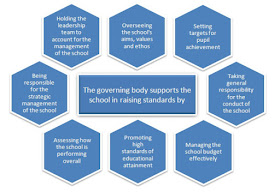The full-time gospel ministry is still a protected oasis. We are relieved of so many of the tensions and temptations that the men to whom we minister are meeting each day. They work with their minds and bodies in this evil world and give their hard-earned money to us so generously that we may spend our days—think of it—in the quiet of our studies, in the Bible, in evangelism, and in pastoring God’s people. I hope you will never join with those ministers who sit around grumbling in their fraternals about all the alleged hardships of being preachers. What a marvellously privileged life we lead. I trust that you earnestly believe that if it be God’s will for you to spend the rest of your life caring for this particular congregation you will happily do so and thank the Lord at the end of each day for such blessings. [Beeke, Joel R.; Derek W. H. Thomas. The Holy Spirit and Reformed Spirituality: A Tribute to Geoffrey Thomas (Kindle Locations 377-383). Reformation Heritage Books. Kindle Edition.]
The limitations of Easyjet hand luggage meant that I wasn't able to bring a bundle of books with me on holiday. Even bookish pastors need to pack clothes, shower gel and a toothbrush, etc. Theology and biblical studies titles are my 'staple diet', so I like to have a change when we go away. This summer my 'big read' was David Lloyd George: The Great Outsider by Roy Hattersley. I'll post a review sometime. I also packed The Mystery of Providence by John Flavel, which I dipped into and The Buried Giant by Kazuo Ishiguro. But such was the length of the Lloyd George biog (640pp), that I wasn't even able to make a start on the novel.
The three volumes mentioned above were in hard copy. With Kindle, however, you can carry an almost unlimited amount of books, which take up no more space than (in my case) your mobile phone. I'd been reading the Kindle edition of The Awakening of the Evangelical Mind by Owen Strachan for a while, turning to it to redeem the time spent in a hospital waiting room, or something. It's a fascinating account of the recovery of Evangelical scholarship during the middle years of the 20th century. Having read a chapter of Flavel one holiday Sunday, I then loaded up The Awakening of the Evangelical Mind, to find that I only had a few pages left and so quickly finished it. What next? Among my as yet unread Kindle books was The Holy Spirit and Reformed Spirituality, edited by Joel Beeke and Derek W. H. Thomas. It's a series of essays, published in 2013 to mark the 75th birthday of Geoff Thomas.
Knowing Geoff as I do, it was interesting to read the opening chapter, a biographical introduction by Geoff's son-in-law, Gary Brady. Chapter 2 is by Paul Levy on A Minister Who Has Produced Ministers. Paul includes a quote from Geoff among the opening paragraphs of his contribution. It's the one at the top of this post. It really struck me when I read it, as I've come across my fair share of grumbling ministers. The assumption in some conferences and ministers' meetings seems to be that many of us are either deeply unhappy in our work, or nearing burn out, or ready to quit at any moment. We therefore need to be treated with kid gloves, 'there, there, poor pastors'. No doubt some preachers find themselves in the midst of horrendous difficulties. Their churches are riven by splits. Seemingly intractable pastoral problems rumble on. I get that. But Geoff's words remind us of the immense privilege of being called to full-time gospel ministry. Less grumbling and more gratitude should be the order of the day.


